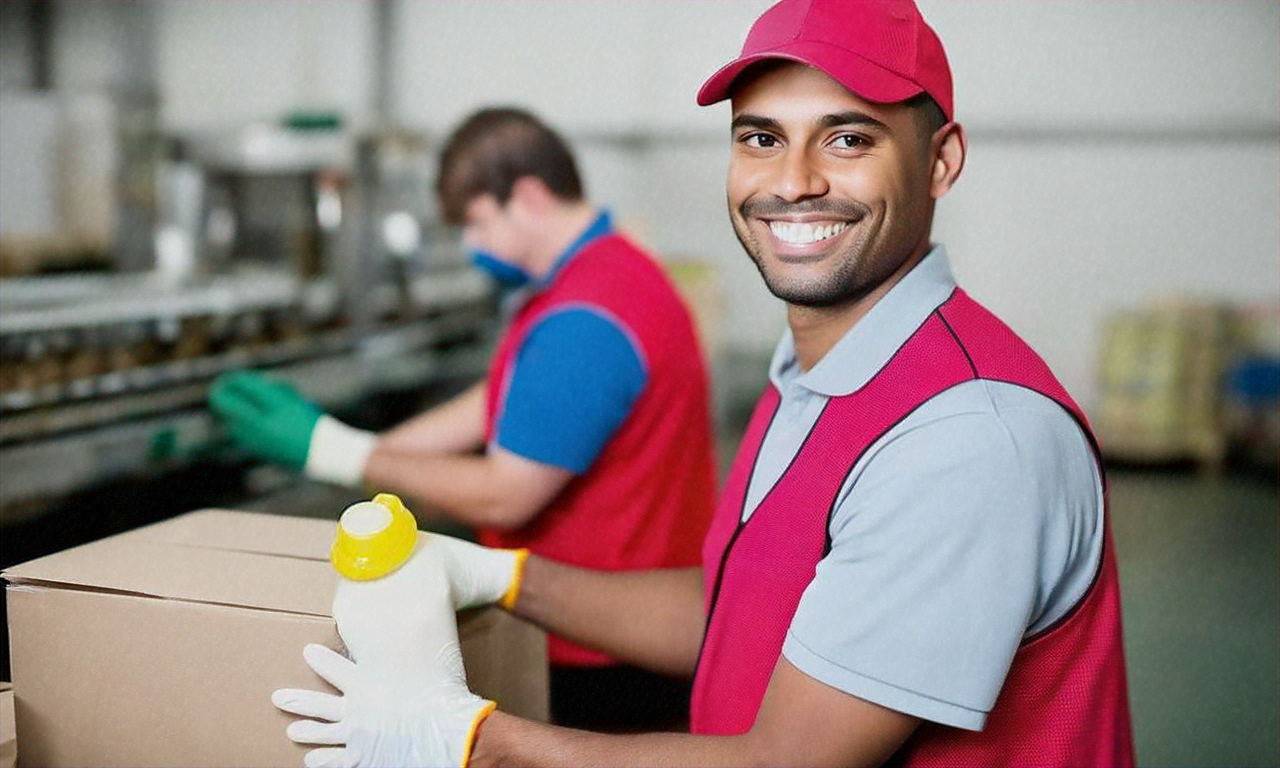General Information About Roles in Food Packing and Handling
The food packing industry offers diverse job opportunities for those seeking entry-level positions or career changes. This article explores the world of food packing jobs, detailing what they entail, the skills required, and how to succeed in this field.

What exactly is a food packing job?
Food packing jobs involve preparing and packaging various food products for distribution and sale. These roles are crucial in ensuring food safety, quality, and proper presentation to consumers. Tasks typically include sorting, weighing, sealing, and labeling food items. Workers may handle fresh produce, meats, dairy products, or processed foods, depending on the employer.
What are the typical duties in food packing?
Tasks in food packing often involve repetitive actions, attention to hygiene, and working in temperature-controlled environments. Common responsibilities include:
- Inspecting food items for quality and freshness
- Operating packaging machinery
- Weighing and measuring products
- Sealing containers or wrapping items
- Labeling packages with relevant information
- Maintaining a clean and sanitary work area
- Following strict food safety protocols
The specific duties may vary based on the type of food being packaged and the company’s procedures.
What skills and qualifications are needed for food packing jobs?
Job requirements can vary based on the type of food products, packaging methods, and safety protocols in place. However, some common qualifications and skills include:
- Physical stamina and dexterity
- Attention to detail
- Basic math skills for weighing and measuring
- Ability to follow instructions precisely
- Understanding of food safety principles
- Willingness to work in a fast-paced environment
- Flexibility with work schedules, including potential night or weekend shifts
Many roles may not require previous experience, but physical stamina and schedule flexibility are often expected. Some employers may prefer candidates with a high school diploma or equivalent, while others focus more on practical skills and work ethic.
What are the working conditions like in food packing facilities?
Food packing jobs often take place in large warehouses or production facilities. The working environment is typically:
- Temperature-controlled (often cool or cold to preserve food freshness)
- Fast-paced with production quotas
- Focused on cleanliness and hygiene
- Potentially noisy due to machinery
- Requiring protective gear such as hairnets, gloves, and aprons
- Involving standing for long periods or repetitive motions
Workers should be prepared for physically demanding work and the potential for overtime during busy seasons.
How can one advance in a food packing career?
While many food packing jobs start at entry-level positions, there are opportunities for advancement. Some potential career paths include:
- Team leader or supervisor roles
- Quality control specialist
- Production manager
- Food safety coordinator
- Logistics and supply chain positions
Advancement often comes with experience, demonstrated reliability, and a willingness to take on additional responsibilities. Some workers may also pursue further education or certifications in food science, safety, or management to enhance their career prospects.
What are the salary expectations and job outlook for food packing roles?
The salary for food packing jobs can vary widely depending on factors such as location, experience, and the specific company. Here’s a general overview of salary expectations and job outlook:
| Position | Average Annual Salary (USD) | Job Outlook (2020-2030) |
|---|---|---|
| Entry-Level Packer | $22,000 - $28,000 | 2% growth (slower than average) |
| Experienced Packer | $28,000 - $35,000 | 2% growth (slower than average) |
| Team Leader/Supervisor | $35,000 - $45,000 | 5% growth (slower than average) |
| Production Manager | $60,000 - $80,000 | 5% growth (slower than average) |
Prices, rates, or cost estimates mentioned in this article are based on the latest available information but may change over time. Independent research is advised before making financial decisions.
While the job outlook shows slower than average growth, the food industry remains essential, and there will continue to be a demand for workers in food packing roles. Opportunities may be more abundant in areas with a strong food production or distribution presence.
In conclusion, food packing jobs offer a gateway into the food industry with opportunities for those seeking stable employment. While the work can be physically demanding and repetitive, it provides essential services in the food supply chain. For individuals willing to work hard, maintain high standards of hygiene, and potentially advance their skills, food packing can be a rewarding career path.
The shared information of this article is up-to-date as of the publishing date. For more up-to-date information, please conduct your own research.






